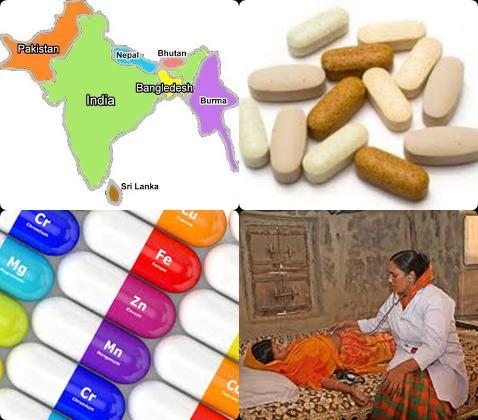
Objectives:
Recent evidence has encouraged low- and middle-income countries to consider transitioning from long-standing iron and folic acid supplementation (IFA) to multiple micronutrient supplementation (MMS) during pregnancy; however, global guidance is limited. Therefore, this review article (meta-analysis) has been conducted.
The aim of this review article is to evaluate the incremental cost-effectiveness of transitioning from long-standing iron and folic acid supplementation (IFA) to multiple micronutrient supplementation (MMS).
Study design:
This review article included data of 2 meta-analyses published in 2017 (Cochrane and The Lancet).
Impacts on health outcomes were aggregated using disability-adjusted life years (DALYs). Costs included the supplements and their distribution through antenatal care. The incremental cost-effective ratio (ICER) for transitioning from IFA to MMS was calculated for each country under each meta-analysis scenario and Monte Carlo simulations were applied to generate a measure of certainty around the results.
Results and conclusions:
The investigators found the effectiveness of transitioning from long-standing iron and folic acid supplementation (IFA) to multiple micronutrient supplementation (MMS)
under the Cochrane scenario was smaller and less certain compared with The Lancet scenario.
The investigators found, however, even under the Cochrane scenario, MMS would avert 4,391, 5,769 and 8,578 more DALYs than IFA per 100,000 pregnancies in Pakistan, India and Bangladesh, respectively (62.6%, 76.8% and 82.6% certainty).
The investigators found the ICER of transitioning from IFA to MMS was 41.54, 31.62 and 21.26 US dollars (USD 2016) per DALY averted, respectively.
The investigators concluded despite discrepancies in the overall effect of multiple micronutrient supplementation (MMS) depending on the meta-analysis used, multiple micronutrient supplementation is cost-effective and generates positive health outcomes for both infants and pregnant women. Whilst the effectiveness of multiple micronutrient supplementation is sensitive to the prevalence of certain health outcomes under the conservative scenario (Cochrane), multiple micronutrient supplementation nevertheless averts more DALYs than long-standing iron and folic acid supplementation (IFA) with high certainty and should re-enter public health discussion in Pakistan, India and Bangladesh.
Original title:
Multiple Micronutrient Supplements Are More Cost-effective Than Iron and Folic Acid: Modeling Results from 3 High-Burden Asian Countries by Kashi B, M Godin C, [...[, De-Regil LM.
Link:
https://www.ncbi.nlm.nih.gov/pubmed/31131412
Additional information of El Mondo:
Find more information/studies on food fortification, pregnancy and malnutrition right here.